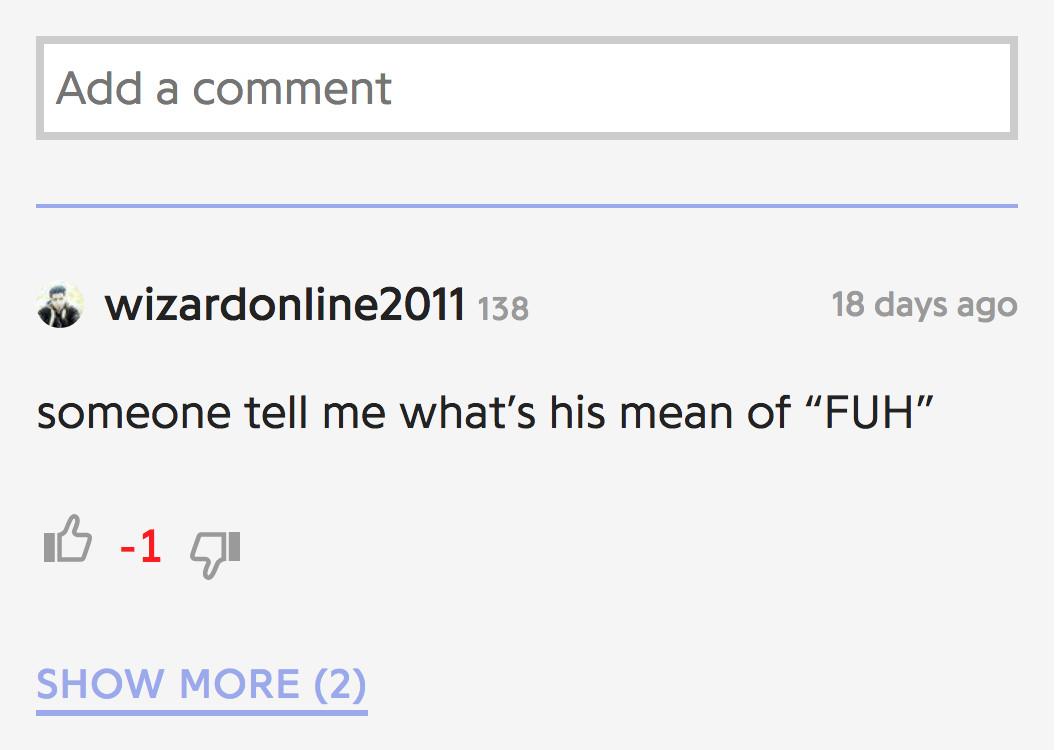Paul McCartney wrote a song called “Fuh You.” It is not the highlight of his new solo album, Friday’s Egypt Station, but it’s certainly the first thing you’ll remember. Think of it as an “Ob-La-Di, Ob-La-Da” for winsome sleazeballs, catchy and quite corny, with a 76-year-old rock legend’s hyper-melodicism and a fundamental dopiness off-putting in a man half his age, or even a quarter of his age, really.
It is, for Sir Paul, impressively on brand. “Sort of a love song, but a raunchy love song,” he mused, upon the single’s release in August. “There you go — fuh you.” Indeed, the lyrics are a bit of pickup-artist frivolity — “Come on, baby, now / Let me look at you,” and so forth — that defy any attempt to overthink it, the confusion of this Genius commenter aside.

McCartney cowrote the song with OneRepublic frontman and oily pop-star-whisperer Ryan Tedder, who at his best crafts top-shelf post-millennial earworms, and also at his best still sounds and feels like that truckful of Axe Body Spray that just blew up in Texas. This all sounds more negative than I intended; I like “Fuh You” quite a bit. To truly love Paul McCartney is to accept that a vague sense of embarrassment is a big part of what makes him so lovable.
Paul Simon wrote a song called “René and Georgette Magritte With Their Dog After the War.” The original is a B-side on 1983’s Hearts and Bones, kicking off with a descending melody that flirts for an exquisite half second with “She’s Leaving Home” and blossoms into an elegant chorus that pays tribute to both the surrealist painter and, surreally, the beloved doo-wop groups of Simon’s youth:
Easily losing their evening clothes
They dance by the light of the moon
To the Penguins, the Moonglows
The Orioles, and the Five Satins
The deep, forbidden music
They’d been longing for
The Hearts and Bones version sounds a little dated, what with the gated drums and zealous guitar reverb and somewhat jarring backing vocals. Nonetheless, it’s one of 10 old songs rerecorded for Simon’s new album, In the Blue Light, also out Friday. The updated “Magritte” is spare and startling, pairing the likewise 76-year-old Simon, his voice gentle and his electric guitar gentler still, with the pop-classical chamber sextet yMusic, who bring a sense of grace without getting too cerebral about it. It’s a showstopper for a guy whose current farewell tour suggests he realizes the show might not go on much longer.
Battle of the Pauls! “Fuh You” aside, Egypt Station, McCartney’s first new album in five years, is produced by Greg Kurstin, himself a pop-star whisperer for the likes of Adele and Beck and Sia. His presence and his sure hand with both orchestral pomp and electronic whimsy grants Sir Paul a certain old-dog-learning-new-tricks vivacity. It’s a very fun record, with a few moments of radio-adjacent rock bombast — see “Come on to Me,” the likewise pleasantly age-inappropriate jam that McCartney snuck into his viral nostalgia-ultra Carpool Karaoke episode back in June — and some ambitious song-suite action meant, as usual, to evoke side two of Abbey Road. There is a notably Lennonesque sing-and-clap-along called “People Want Peace”; there is a goofy, sprawling travelogue called “Back in Brazil” that is boisterously Extra and once again very much on brand.
The drums throughout have an aggro-Ringo snap to them; McCartney’s voice is, unavoidably, a frailer thing, though he remains charmingly young at heart. There are more than enough ecstatic choruses and wild flights of fancy on this record — the quasi-medley “Despite Repeated Warnings” is his biggest, most convoluted swing — to justify another gargantuan arena tour sure to thrill millions of folks happy to belt out “Hey Jude” at full force even if he can’t. All those folks want is the old stuff, but the new stuff will hardly drive them to the bathroom en masse. Egypt Station is the work of a spry septuagenarian hell-bent on looking forward, even if his come-ons result in a few moments of Philip Roth–style unease.
Whereas Simon, in his usual combative way, is definitely looking back, albeit in as forward-thinking a manner as possible. His farewell tour concludes September 22 with a very final-seeming blowout at Flushing Meadows Corona Park in Queens; he just told NPR that he hasn’t written a new song in several years and feels no further compulsion to try. (“I literally felt like a switch clicked, and I said, ‘I’m finished.’”) In the Blue Light, in any event, is no mass-market victory lap. Simon sticks to deep cuts: no Graceland, no all-universe greatest hits. The moody “Can’t Run But” from The Rhythm of the Saints is just about as prominent as these tunes get. The oldest entry is the jazzy, loping “One Man’s Ceiling Is Another Man’s Floor,” from 1973’s There Goes Rhymin’ Simon, revised to be just a little bluesier and swampier. The newest is the delicate “Questions for the Angels,” from 2011’s So Beautiful or So What, now given a little more shimmer courtesy of virtuoso guitarist Bill Frisell. (Simon futzes with a few lyrics here and there on these updates, but the Jay-Z shout-out on “Angels” is thankfully intact.)
These are hardly radical reconstructions, thank goodness: Even Simon’s 21st-century output has been reliably adventurous enough to prove that he’s still got it, however you define it in his case. The idea, then, is not so much to fix mistakes or force do-overs, but to argue that Simon might have a few more all-universe greatest hits than you realize. He also told NPR that “Darling Lorraine,” one of four revised cuts from 2000’s You’re the One, is “one of the best songs that I’ve ever written.” And maybe this one is a bit of a do-over, as he fears that the original version, with its worldly bounce, overwhelmed the song’s intricate lyrics and left listeners “distracted by the sounds.”
The new “Darling Lorraine” is not exactly minimalist: Both Frisell and yMusic are along for the ride now. But they keep the racket down, the better to focus on Simon’s lyrics, which are, as usual, pretty astounding. The song tracks a marriage from beginning to end, from the meet-cute (“So I walked right up to her / And with the part of me that talks / I introduced myself as Frank / From New York, New York”) to their domestic squabbles (“What? You don’t like the way I chew?”) to Lorraine’s decline:
Darling Lorraine
Please don’t leave me yet
I know you’re in pain
Pain you can’t forget
Your breathing is like an echo of our love
In a few moments the vibe borders on pure silliness — Simon adopts almost an Adam Sandler–esque cartoon indignance during the squabbling parts — but this one’s a showstopper too, and a tearjerker if you aren’t careful.
Even lifelong superfans don’t come to your average 76-year-old rock star’s new album expecting all-time classics, or anything remotely on the scale of the greatest hits that minted all those lifelong superfans in the first place. But it has been a joy, lo these past 30 years or so, to watch both Pauls plug away at it, undaunted by their own unbeatable primes, imagining bold new futures and reimagining their own storied pasts. Egypt Station proves McCartney is still a shrewd, playful scamp whose worst impulses can be just as delightful as his best ones, forever a lovable post-adolescent doofus with one of the best melodic ears in the history of Western civilization. In the Blue Light proves Simon is still a cerebral romantic and a Mount Rushmore lyricist, the ultra-rare pop songwriter who hits harder the more verbose he gets. That we get two essential tracks out of these two albums is a huge bonus. That both of those essential tracks are Simon’s shouldn’t get McCartney down. It’s enough to know that sometime soon, McCartney will try again, and despite his protestations, maybe Simon will, too.
